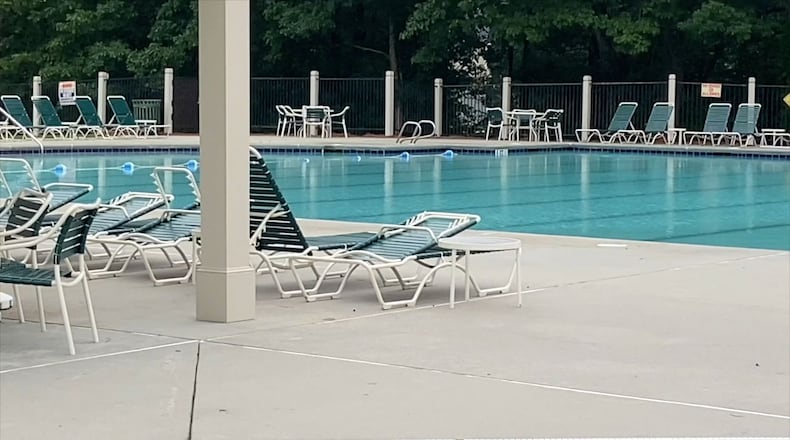Temperatures are rising, but many pools in metro Atlanta neighborhoods are still closed as homeowners associations try to suss out the financial and legal risks of opening to swimmers in the midst of a pandemic.
Public pools, including those in subdivisions and apartment and condominium complexes, were closed for nearly two months as part of state measures to prevent the spread of coronavirus. Those restrictions were lifted by Gov. Brian Kemp on May 14. The pools were allowed to open, but under the condition that they meet nearly two dozen requirements from the Georgia Department of Public Health.
READ | Stage is set for new normal in nightlife
The new rules, including enforcing social distancing and daily sanitizing, weren’t overly burdensome for some municipal and county governments that operate public pools. Tucker and Snellville have opened city pools with new rules for guests and employees. But for homeowners associations, which face the same requirements as local governments, the decision is more difficult.
Pools in many of these communities usually operate without daily cleaning staff or lifeguards; personnel helping meet the new requirements at city and county pools. Communities that typically don’t hire lifeguards and full-time maintenance workers have found it more difficult to determine how to comply with the new requirements.
“More than a few of them require a great deal of infrastructure or processes involving evidence of compliance. How are you ensuring sanitation? How are you ensuring social distancing?” said Wendy Ruona, whose husband is the HOA president of a Lawrenceville subdivision with more than 100 homes. “Some of the HOAs in our area are wondering, is it putting up a sign? How do you evidence these things? How do we comply with these measures, and how do we show evidence that we are?”
Ruona’s community hasn’t opened its pool, and it’s uncertain whether it will open at all this summer. That’s also the case for Austin Meadows Condominiums in Decatur. The additional costs that would come with the new legal requirements would likely put too much of a financial burden on the HOA’s budget to justify opening the pool, said Nimata Paul, the association’s president.
“Having to ensure social distancing is happening in the pool and pool area, and dealing with cleaning products and possibly staff to make sure it’s clean could pose an unbearable expense that would make us unable to open the pool,” Paul said.
Another concern for homeowners associations is the legal risk that could come with opening a community pool. Insurance policies generally don’t cover HOAs for coronavirus-related suits, so the organizations would have to use their own funds to fight lawsuits that could stem from any cases traced back to a common area. Even getting a meritless suit dismissed could pose a significant risk to a group’s funds, said attorney George Nowack.
“For a small association with a small budget, maybe 100 or so homes, it could be potentially devastating if they had to pay $40,000 to get themselves out of a lawsuit,” said Nowack, whose firm, NowackHoward, represents associations across Georgia.
Many HOAs have bylaws that could restrict them from dipping into reserves for legal expenses, leaving them with just the money budgeted for everyday costs — landscaping, maintenance, shared utilities — to pay legal bills. Communities with more financial wiggle room or a large number of dues-paying residents may find it easier to assume this risk than those with tighter budgets or fewer residents, Nowack said.
The decision community leaders are faced with is unprecedented, Nowack said.
“We’ve never had this in the history of community association law and insurance,” said Nowack, who’s represented HOAs for nearly 40 years “There’s never been a situation where a board has had to make the decision that they are agreeing to take an action that would open the possibility of an uninsured loss.”
About the Author
The Latest
Featured


